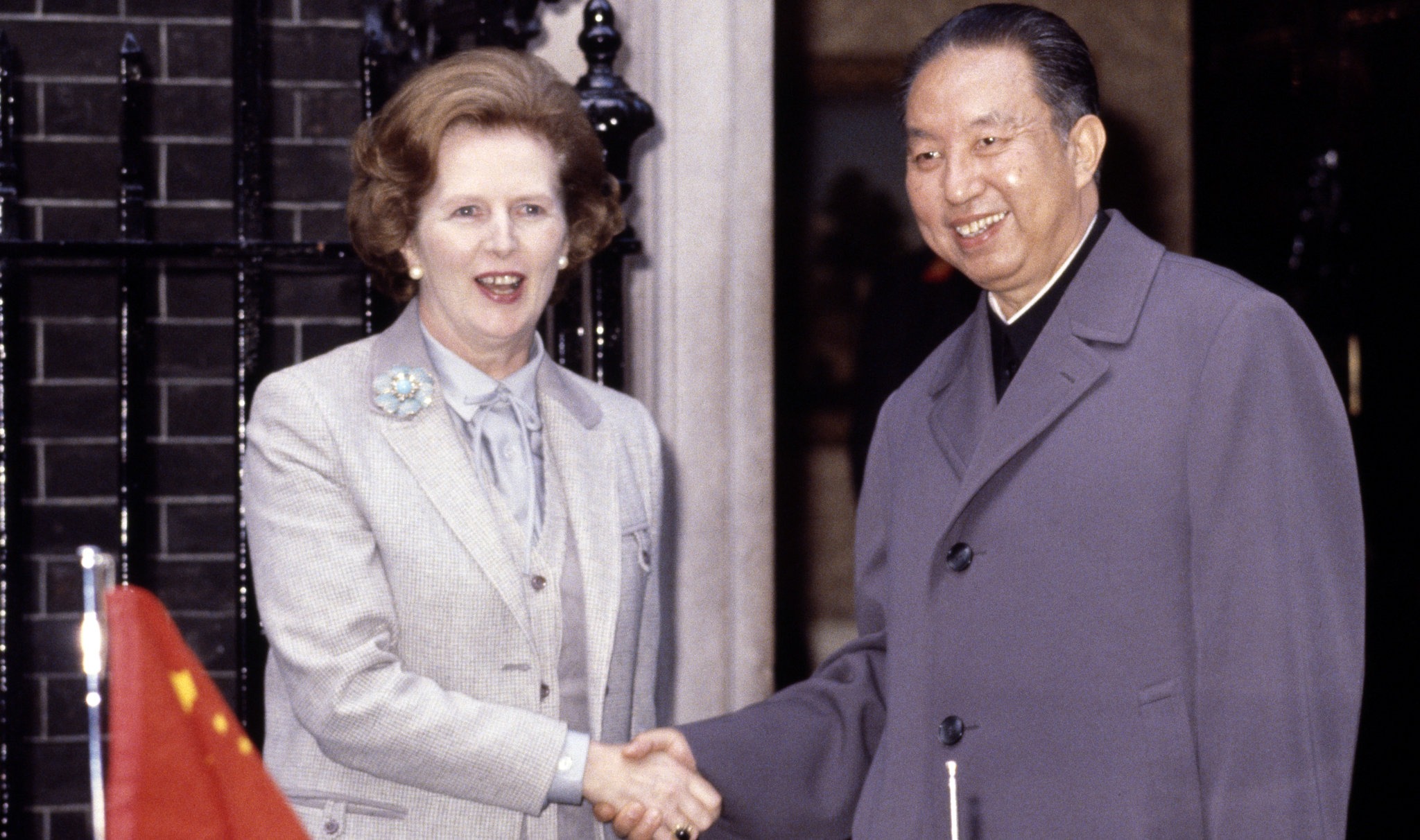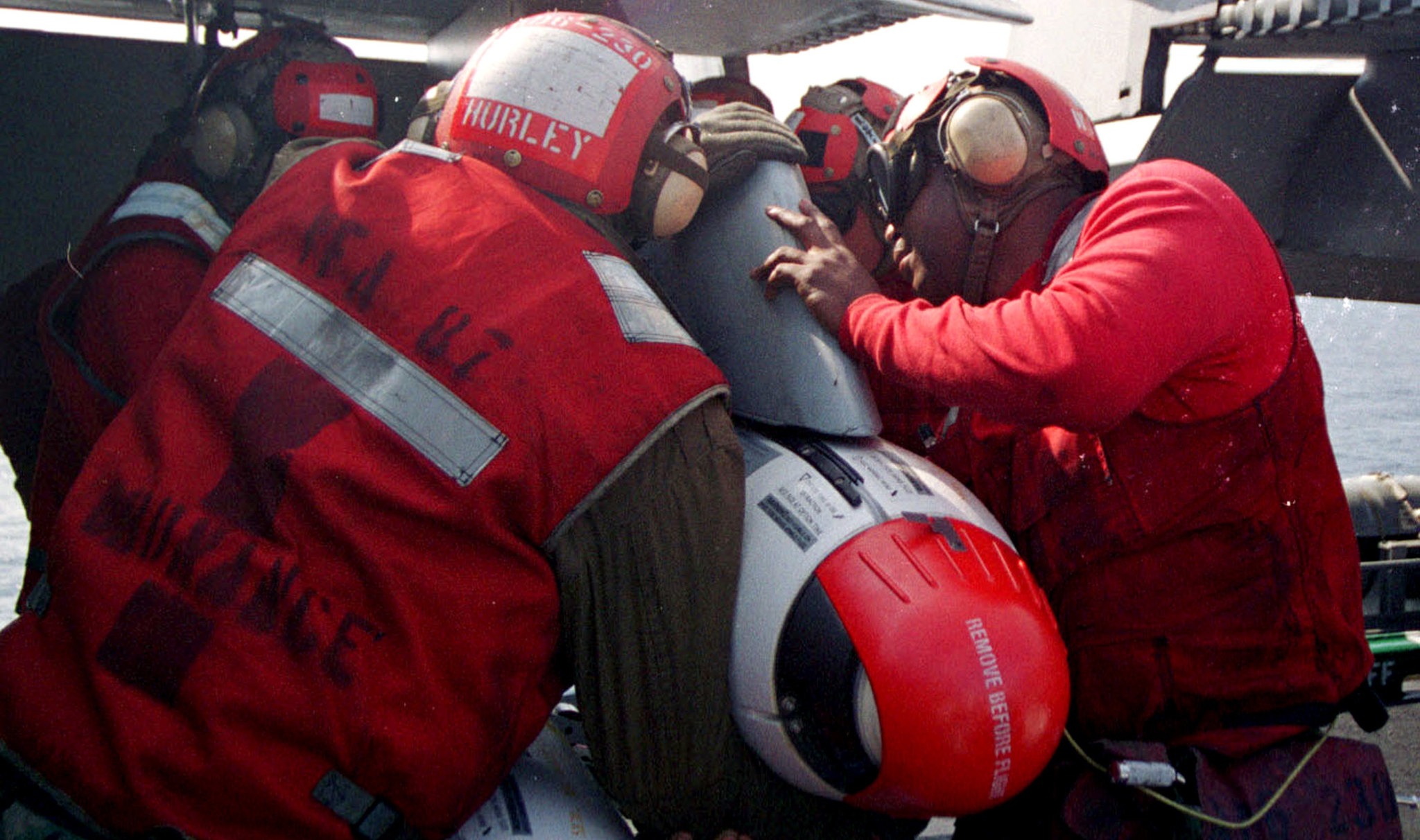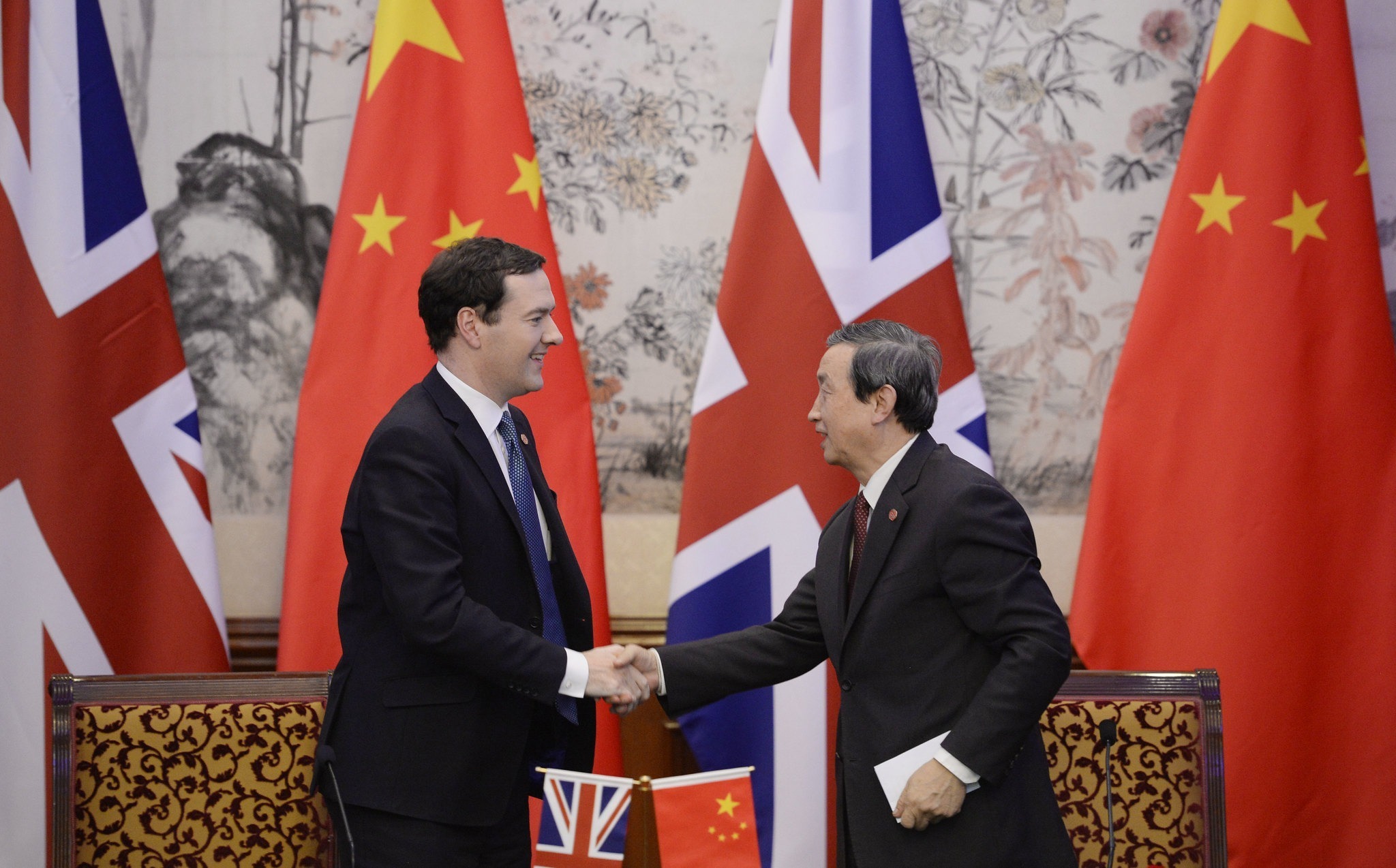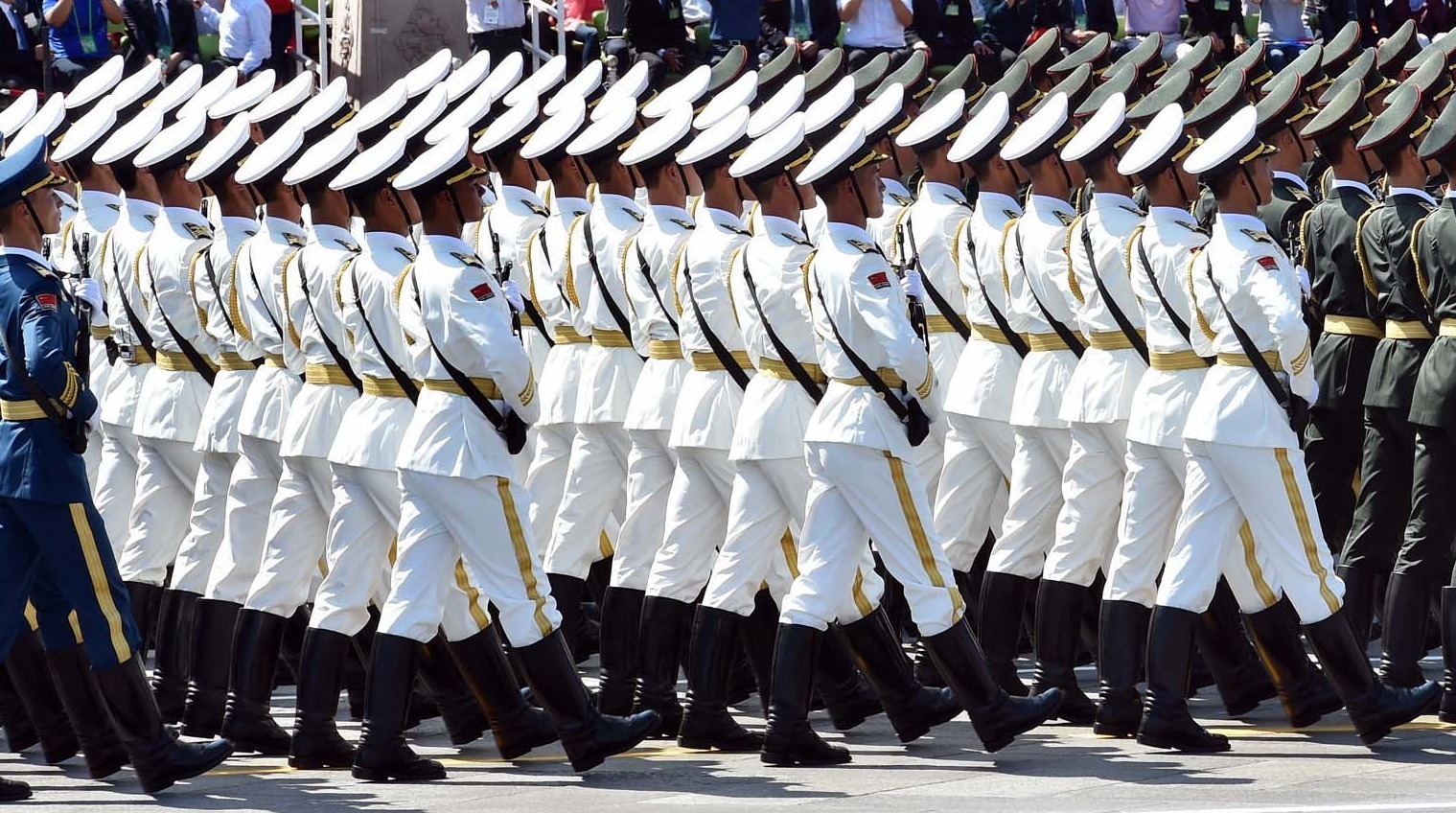A Conservative prime minister flirted with selling up to 10,000 cluster bombs to communist China at the height of the Cold War, it can be revealed.
Margaret Thatcher allowed civil servants to pursue the secretive arms deal with Beijing in a bid to make millions of pounds for British industry.
Chinese engineers were even allowed to “witness a demonstration” of the weapon at a cluster bomb factory in Hertfordshire during the summer of 1980.
A secret test of the weapon – to be dropped from a Chinese aircraft in China – was also contemplated.
Ultimately Beijing appears to have lost interest in the negotiations, with some suspicion in London that the regime would not order enough bombs to make it financially worthwhile.
Our revelation comes amid renewed concern about the dangers cluster bombs pose to civilians, with US president Joe Biden authorising their supply to Ukraine.
It is unclear whether Biden will transport the weapons to Kyiv via US bases in Britain. The Ministry of Defence press office did not provide clarity on the matter when asked by Declassified.
Cluster bombs drop dozens of smaller bomblets over a wide area. Many miss the target and some fail to detonate on impact.
These ‘duds’ can kill civilians long after a conflict has ended, often when children mistake unexploded bomblets for toys.
Banned bomb
More than 120 nations have signed a treaty to ban the weapon since 2008. As a signatory to that convention, UK prime minister Rishi Sunak was obliged to make mild criticism of Biden’s decision last week.
But for decades until Britain banned the bomb, it was a world leader in their manufacture and export.
Sunak’s predecessor, Thatcher, had no qualms about selling the weapon to even the most brutal dictatorships, such as Zimbabwe and Saudi Arabia.
However, her attempts to add another customer to that list – China – have remained secret until now.
Her government’s highly confidential negotiations are laid bare in a cache of files found by Declassified UK at the National Archives.
They reveal that within two months of Thatcher entering 10 Downing Street in 1979, a team from state-owned British Aerospace (now called BAE Systems) was on the ground in China promoting sales of its Harrier jet.
Chinese authorities were reluctant to buy the aircraft unless it came with cluster bombs, prompting a debate in Whitehall about whether to export this weapon.
“Chinese military industrialists were ‘clearly impressed’ by the display of cluster bombs”
A British diplomat, Richard Fursland, reasoned: “Ministers have made clear that they want the Harrier sale to go through…I am sure that Ministers would not wish Harrier negotiations at the present stage to be complicated by any reluctance on our part to discuss possible sales of Cluster bombs as one of the many options which might form part of an eventual deal.”
Fursland stressed the importance of British firms being “as free as possible to discuss the inclusion of any equipment which might help to secure” the sale of Harriers to China.
Ministers entertained the idea throughout 1980, allowing Chinese engineers to visit a factory in the home counties where they watched a demonstration of Britain’s BL-755 cluster bomb by its manufacturer, Hunting Engineering.
The visitors, drawn from a group of “some 20 Chinese military industrialists”, were “clearly impressed” by the display.
The Ministry of Defence’s (MoD) arms dealing wing, the Defence Sales Organisation (DSO), had already held “a number of meetings…with the Equipment Department of the Chinese Headquarters General Staff” in Shanghai about cluster bombs.
Reacting to our discovery, Andrew Feinstein, author of The Shadow World: Inside the Global Arms Trade, commented: “This extraordinary revelation shows yet again how the UK’s arms export controls are – contrary to government statements over decades – amongst the weakest in the world and enable Britain to sell pretty much any military materiel to anybody.”
He added: “Cluster munitions have a devastating impact on civilian populations. There should never have been an attempt to sell them to the Chinese, just as no country should be sending them to Ukraine today.”
‘Terror weapons’
The secret negotiations took place less than five years after the death of Chairman Mao Zedong, whose ‘cultural revolution’ saw the death of up to two million Chinese citizens, many through famine.
Zedong left behind a totalitarian state system, but one that had a rift with the Soviet Union – providing Western leaders an incentive to woo Beijing as part of Cold War geopolitics.
Some staff in the Foreign Office worried that exporting cluster bombs to China “could hand the Russians a propaganda gift on a plate” due to its “certain notoriety as an inhumane weapon” if used against troops rather than tanks.
Others highlighted how “sales to authoritarian, repressive regimes require particular attention” and noted the weapon’s “potential use in internal repression”.
Government officials were conscious that the weapon’s use “against personnel in civilian areas could nevertheless cause a public outcry as Cluster Bombs are established in the public mind domestically and internationally as ‘terror weapons’.”
But others felt the UK could “ride a bit of Soviet propaganda” and the MoD took the view that “whereas BL-755 could be used to disperse crowds, just as a sledge hammer can be used to crack a nut, it would be ludicrously expensive over-kill”. Each bomb would cost around £35,000 in today’s prices.
Approving sales
By May 1980, the Foreign Office was so relaxed about the issue that a staffer, G.E. Cheesman, wrote: “We have since come a long way in approving sales of sensitive equipment to the Chinese and I would not have thought that Ministers now would regard sales of BL755 to China as a sensitive issue.”
Government guidance allowed British arms firms to “explore without commitment” the sale of such weapons to China. In practice, this meant: “If we authorise exploratory discussions now, we shall in effect have taken a decision to sell these weapons, even if the formal decision is delayed until later.”
Whitehall believed China only wanted the weapon for “defensive use against the perceived Soviet threat and not for internal suppression.” It would “partly fill a Chinese defensive gap against vastly superior Soviet armour positioned across their northern frontier” and therefore “provide a little more balance to the Sino-Soviet military situation”.
An RAF wing commander did urge some caution, explaining that data on their cluster bomb’s effectiveness against Soviet T-72 tanks was “extremely sensitive”. The data showed British pilots could only expect to kill one in ten modern Russian tanks at best with the weapon.
Secret demonstration
The talks continued even as the Chinese lost interest in buying Harrier jets from British Aerospace. Beijing indicated it wanted to fire the cluster bomb from Chinese-made planes and even acquire the right to licence production of the British-designed weapon in China.
Whitehall “made clear to the Chinese that any deal would have to provide for certain minimum numbers of weapons to be provided whole or as components before we could agree to licensed manufacture.”
Officials felt “the sort of numbers we would put to the Chinese at the start would be for a minimum of 5000 complete bombs…a deal of this sort would be worth something of the order of £75m and provided much needed work for both Hunting Engineering and the Royal Ordnance Factories.”
Another document put the potential order at up to 10,000 bombs, and worth over £100m. The cost would be four times that amount today, when adjusted for inflation. A senior MoD official said: “The security and strategic risks are, I believe, minimal, and the economic benefit would be substantial.”
A DSO team visited Beijing again in November 1980 and wanted to let a Chinese pilot conduct a secret demonstration of BL-755 from a Chinese plane on their next visit, with deliveries of the bomb aimed for 1982.
A senior British diplomat, Sir Edward Youde, worried: “There is a French equivalent to the BL-755 cluster bomb. If we decided not to proceed in this matter, there is little doubt the Chinese would be able to explore purchase with the French.” Youde went on to become governor of Hong Kong in 1982.
‘Deepening relations’
As civil servants admired “our deepening relations with the Chinese”, they consulted ministers on how far to let matters progress in late 1980.
The files show Conservative defence secretary Francis Pym considered that “we should authorise contractual negotiations and agree, in principle to the supply and manufacture of the weapons if these are successful”.
Britain’s foreign secretary, Lord Carrington, believed similarly that “no decision in principle about the supply of these weapons should be taken until the main features of the proposed deal are very much clearer than they are now.”
His private secretary, Roderick Lyne, explained that the minister was “prepared to agree to the continuation of the negotiations without commitment, in order to establish the terms on which a deal might be possible.”
Lyne, who later became UK ambassador to Moscow, said Carrington saw “no reason why the Chinese should not be told informally that the sale of these weapons…would create political difficulties for the government which they would only contemplate facing if the deal was worthwhile in terms of the work it would bring to British industry and the Royal Ordnance Factories.”
“We are prepared to agree in principle to the demonstration in China”
Even the prospect of testing the bomb in China was not ruled out. Lyne said: “While we are prepared to agree in principle to the demonstration in China we should be grateful if you would consult us about the timing. We should want to take into consideration the state of East-West relations, particularly over Poland.”
Another document in the file, bearing the Downing Street stamp, said: “The Prime Minister has seen a copy of Roderick Lyne’s letter…She agrees that it would be right to delay a decision in principle about the supply of the weapon system until we are clear about the size of the order.”
When John Nott took over from Pym as defence secretary in January 1981, he formed the view that “negotiations should continue with the Chinese without a firm commitment to supply at this stage”.
There were only five items Britain completely ruled out selling to China, fearing they would “upset the strategic balance”. These were Chobham tank armour, radar-guided surface-to-air Rapier missiles, strike aircraft such as the Tornado (but not Harrier), large cruisers and submarines.
The final page from the files shows that any decision on cluster bombs “lies now in the hands of the Chinese”. An official wrote: “The matter must then be assumed to be in abeyance until further word from the Chinese.”
The Chinese embassy and Hunting did not respond to requests for comment.
Britain’s Foreign Office would not comment specifically on the story and BAE Systems regarded it as an historical matter that involved one of their legacy companies.
A BAE Systems spokesperson said: “We do not manufacture nor sell cluster munitions which are banned under the terms of the Convention on Cluster Munitions. We trade with legitimate governments and comply fully with all applicable defence export controls, which are subject to ongoing assessment.”





